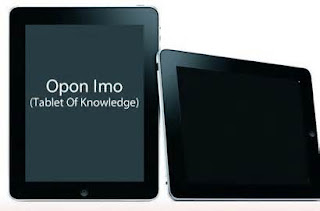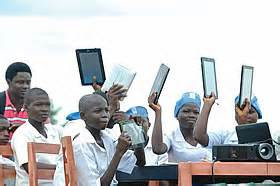By Novelist Vigil Chime
STORY SYNOPSIS
MY SONGBIRD CAN DANCE is a story written in three parts. Book 1 tells the story of a Nigerian family living in New York City in the present day. Nathaniel and Anne Ofordilli came to America to pursue the American Dream. However, after the couple was blessed with two daughters – Ada and Rachel – the dream turned into a virtual nightmare. The stresses of being immigrants in a foreign country soon overwhelmed them and the marriage collapsed.
Nathaniel immediately remarried, to a white woman who bore him four sons. His joy of sons eclipsed his two daughters and in time, he learned to forget about the girls. Anne, on the other hand, did not remarry, and because her daughters’ father abandoned them, she went out of her way to spoil her children, in particular Rachel who was only 6 years old when her father left the family.
The psychological trauma of her father’s abandonment has crippled Rachel’s emotional development, to the point she only dates older men who are in essence her sugar daddies. To make matters worse, she dropped out of Columbia University, one of the most prestigious schools in America. She prefers to hang out in nightclubs then returns late at night to sleep all day. At 25 years old, she has held no job in her life because her mother and her sugar daddies support her.
The story, then, almost exclusively focuses on Rachel. An irresponsible life can only go so far, so hers begins its downward spiral when she walks in on her man with another woman. Rachel nearly kills the woman if not that her boyfriend intervenes. Despondent, she returns home to find that her mother has changed the locks on the door. Anne has finally had it with her useless and lazy daughter and implores Rachel to go out into the world and make something of herself.
Hurt to be cast out on the same day she caught her man cheating, Rachel ends up at her best friend’s home. Because the best friend is worried about Rachel messing with her own boyfriend, she eventually asks Rachel to leave. Hurt again, Rachel has nowhere else to go but her father’s house. She asks him if she can stay with him and his family, but Nathaniel categorically refuses to let her in.
Feeling unwanted and unloved, Rachel determines to commit suicide by jumping off a cliff. Standing on that cliff and thinking about the mess she’s made of her life, Marcus Peyton, a 42-year old black American, comes upon her and is immediately smitten with the gorgeous dark chocolate beauty. Marcus does not know if he should comfort her or leave her be. In the end, he decides to intervene and ask her what’s wrong. This will prove the worst mistake of his life.
He assumes she is African because she looks like one. Rachel allows him to believe this – going so far as to make up a story of being from a poor village in Nigeria. Now in America, she is poor and wretched and an illegal alien. In fact, she was fired from her job and now has no place to go. Marcus invites her to be the nanny of his two small children. Rachel accepts the job offer on the spot since she has nowhere else to go. But Marcus’ motive for bringing her under his roof is to take advantage of her sexually. His wife, Yvette, is too distracted by her addiction to drugs to be mindful of her husband’s lust over the young nanny.
Rachel soon discovers Yvette’s drug problem and tries to help the woman kick the habit for the sake of her marriage and her children. In the meantime, Marcus is still making advances towards Rachel and Rachel is doing her best to ignore him. She is trying to be responsible and do the right thing, just like her mother wanted.
Since Marcus will still not leave her alone, however, Rachel decides to leave the household. She informs the family she is quitting, effective immediately. She is trying to locate her suitcase in the basement of the house the night before she is to leave when Marcus enters to help. He discovers drug items beside the suitcase and well assumes the filthy material belong to Rachel.
Rachel has no choice but to admit to him the drugs are not hers but his wife’s property. Angered she would be lying about his wife, Marcus snaps and attacks Rachel. Hearing all the noise, Yvette enters to see Marcus beating the girl to near death. She does not intervene to rescue Rachel, believing her husband would beat her too if she confesses to the drugs. Yvette walks out, leaving Marcus to continue assaulting Rachel. He does not stop with just the beating. He stands over her and urinates on her. Rachel feels the slime of his urine pouring all over her head and face before she blacks out into unconsciousness. This is the end of Book 1.
After she recovers from her injuries, now in Book 2, Rachel determines to destroy Marcus and Yvette, too. But it’s how she does it that proves without a doubt certain individuals on this earth should never be crossed. You the reader cannot anticipate how she does it. You will not see it coming. But at the end of Book 3, you will be left stunned and horrified.
Here’s how she does it. Marcus is remorseful for how he treated her and begs her forgiveness. She agrees to forgive him on one condition – he has to believe her that Yvette is a drug addict. They set a trap where Yvette is caught by Marcus about to inject herself with heroin. Angered that his wife would lie about her drug use, which led to him beating up Rachel in the first place, Marcus sends Yvette to a drug program to clean up. This is Rachel’s first plan of vengeance against Yvette – remove her from the house. Next, she takes over the woman’s husband by beginning an affair with her. Marcus, foolishly, believes Rachel has truly forgiven him. She has not.
The biggest challenge for Rachel is Marcus’ destruction, both professionally and emotionally. He is a theater director, and has written the greatest play of his career. He originally cast Yvette his wife in the lead role. In fact, the theater in which the play will be produced is the couple’s. They liquidated their savings to purchase the theater. But Since Yvette is now a drug-user, Marcus has to find someone else to take her place. Because she is already sleeping with him, Rachel convinces Marcus to cast her in the role. Against all sensible advise by everyone near him, Marcus does this.
When Yvette returns from drug treatment, now Book 3, she discovers that Marcus has given her role to their nanny and that the nanny is now sleeping with her man! Yvette cannot take these realities and goes mad. She runs away from her family and relapses into hardcore drug use. She will not be heard from again.
On opening night of the play, Rachel sets into motion the greatest role of her life. Instead of performing like a true and brilliant actress, she performs like an inexperienced one – this in full view of New York City’s finest people and politicians. The critics cannot believe how bad she is and destroy Marcus’ career in scathing reviews that will be published the next day.


Rachel does not stop there. She burns down the theater by literary setting it on fire. She corners Marcus in a room and confesses everything she has done to him ever since he nearly killed her by beating her. Worst, she says to him, it was his literary pissing on her that really drove her to madness. Incensed beyond reason to have been so duped, Marcus resorts to kill her on the spot.
He chases her down a very busy street. Rachel dashes across the street. Marcus is not mindful of the speeding cars as he attempts to equally cross. He is hit by a car, and is rendered a cripple. He will spend the rest of his life in a wheelchair, without his wife and kids, wondering why in the world he ever stopped that day to find out why that stupid girl was crying on that cliff in the first place. He should have minded his business and left her there.
 Born in Lagos, Nigeria, in 1964 to a family of five children, Sefi Atta attended Queen's College, Lagos, Millfield School, England and graduated from Birmingham University in 1985. She also trained as a chartered accountant. Her father Abdul-Aziz Atta was
the Secretary to Federal Government and Head of the Civil Service until
his death in 1972, and she was raised by her mother Iyabo Atta.
Born in Lagos, Nigeria, in 1964 to a family of five children, Sefi Atta attended Queen's College, Lagos, Millfield School, England and graduated from Birmingham University in 1985. She also trained as a chartered accountant. Her father Abdul-Aziz Atta was
the Secretary to Federal Government and Head of the Civil Service until
his death in 1972, and she was raised by her mother Iyabo Atta.

 Awards and Recognition
Awards and Recognition
 Adaobi Tricia Nwaubani was born to Chief Sir Chukwuma Hope Nwaubani and Dame Patricia Uberife
Nwaubani in Enugu, Nigeria in 1976, and was raised by both parents in Umuahia, Abia
State, Eastern Nigeria. Her debut novel, I Do Not Come to you by Chance, which was described by The Washington Post
as “a lively, good-humored and provocative examination of the truth
behind a global inbox of deceit”, won the 2010 Commonwealth Writers'
Prize for Best First Book (Afriaca), a Betty Trask First Book award,
Adaobi Tricia Nwaubani was born to Chief Sir Chukwuma Hope Nwaubani and Dame Patricia Uberife
Nwaubani in Enugu, Nigeria in 1976, and was raised by both parents in Umuahia, Abia
State, Eastern Nigeria. Her debut novel, I Do Not Come to you by Chance, which was described by The Washington Post
as “a lively, good-humored and provocative examination of the truth
behind a global inbox of deceit”, won the 2010 Commonwealth Writers'
Prize for Best First Book (Afriaca), a Betty Trask First Book award,




















